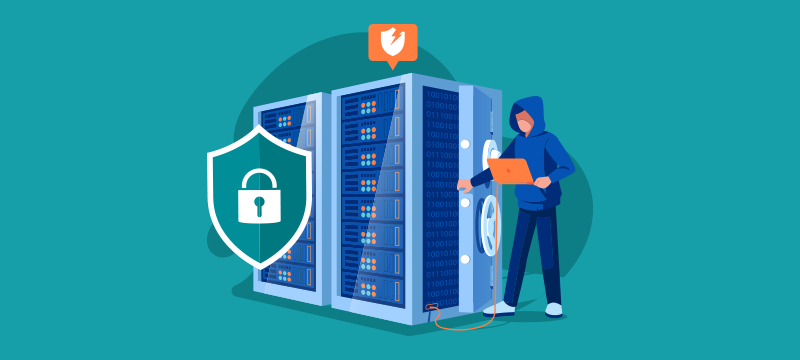A slow-loading page or poor-performing VPS server can be a mood killer. Optimizing the VPS Server can do the trick of delivering a flawless user experience, irrespective of if you are operating a website, data, or software. You can increase the server’s effectiveness, dependability, and speed by adopting a few easy techniques. In this post, we will be looking at the different ways you can optimize your VPS server for enhanced performance, enabling you to keep your visitors and clients satisfied.
VPS servers
Virtual Private Server is similar to a dedicated server. It is basically one server that is virtually compartmentalized into various sections. It has resources like CPU, disk space, and RAM; making it the perfect doppelganger of a dedicated server. VPS servers are cheaper compared to dedicated servers.
The only difference is the number of users. In a VPS environment, there are several users among whom the resources are equally divided, while a dedicated server is solely dedicated to a single user. This is an ideal solution for a business person who needs more resources but isn’t yet ready for a dedicated server.
Performance Optimization Importance
Performance optimization guarantees that your VPS server can manage the requirements of a website while still operating effectively. A badly functioning VPS server can cause lengthy page loads, downtime, and financial losses. You can ensure that your website functions smoothly through performance optimization.
Performance Aspects of VPS Servers
The performance of VPS servers can be affected by a number of factors, including:
- Resource distribution RAM, CPU, and disk space are distributed to several processes or software that are operating on the server, this entire process is known as resource allocation. Too many programs or applications functioning on the VPS server can cause resource conflicts and poor performance.
- Configurations The performance of the VPS server can also be influenced by the configurations of the web server. For instance, the time it takes for a page to load can be slow if the web server is not structured to manage numerous large simultaneous connections.
- Network traffic The VPS server functioning can also be influenced by the engagement and traffic being received on your application or website. If there is an unexpected spike in network traffic, it can lead to your website loading slowly.
- Database performance If the website is dependent on a database to function then the quality of that database can influence the performance of the VPS server. The website or app can become sluggish as a result of badly optimized database connections or queries.
Tips To Optimize The Performance of Your VPS Server
Here are some of the techniques you can look into to optimize the VPS server performance:
- Track the use of resources Monitoring resource consumption is one of the first steps to maximizing the VPS server performance. This will assist you in locating any programs or processes that are exhausting excessive amounts of resources like RAM, storage, etc. You can track resource utilization with a number of programs.
You can take action to maximize any process or programs that are exhausting excess resources once you have identified them. To clear out CPU or RAM, you may, for instance, lower the number of SQL injections or Apache workers.
- Optimize the web server Maximizing the web server is another crucial technique in enhancing the VPS server’s functioning. There are a few steps you can adopt to maximize the web server, like:
- Compress the databases that are sent to the customers to lower their size.
- Adopt caching to lower the request that is transmitted to the server.
- To supply a static database, utilize a CDN (Content Delivery Network).
- Utilize caching When data is cached, it is frequently accessed information is kept in memory for faster access. Caching allows you to send the server fewer requests, which enhances the efficiency of your VPS server. You can utilize a variety of caching techniques, such as:
- Page caching: To serve pages more rapidly, page caching stores complete pages.
- Caching of objects: particular items, such as database requests or API responses, are cached.
- Opcode caching: Optimizes PHP performance by caching built PHP code.
- Maximize database performance Enhancing the performance of your database is essential if the performance of your VPS server is dependent on it. Here is what you can do to enhance the performance of your database:
- To enhance query functioning index tables
- To lower the queries being transmitted to the database utilize stored processes
- To lower the queries being transmitted by the database optimize queries
- Streamline traffic and prioritize applications Organized applications and traffic restrictions can help VPS servers run better. For instance, you can organize the apps from the vital to the less critical ones or employ a load balancer to uniformly spread traffic over numerous servers.
Typical Errors To Avoid When Enhancing VPS Server Performance
Users who are new to this often make a few errors. Here are a few mistakes to avoid when maximizing the VPS server performance:
- Not observing resource allocation
- Turning off crucial features due to over-maximizing
- Not enhancing database queries
- No utilization of caching or a CDN system
Conclusion
A smooth and effective operation of your website or application depends on the functionality of your VPS server. You may enhance the performance of your VPS server and steer clear of common blunders by implementing the advice and best practices provided in this post.
Always keep an eye on resource utilization, optimize the efficiency of the database and web server, and utilize caching and a CDN to lessen server strain. You can maximize the use of your VPS server by putting the appropriate tactics and tools in place.
